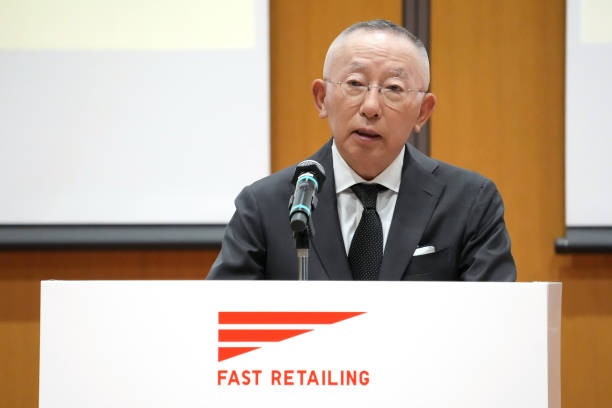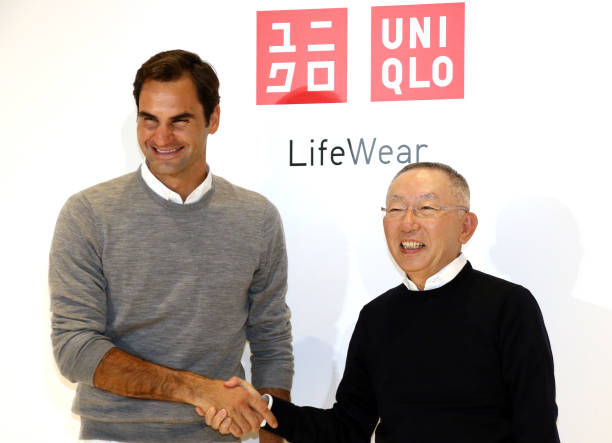Tadashi Yanai, the founder of Fast Retailing and the driving force behind the global brand Uniqlo, is one of Japan’s most successful entrepreneurs. His story is a remarkable tale of vision, innovation, and relentless ambition. This blog delves into Tadashi Yanai’s rise to wealth, outlining the key moments and strategies that led him to the pinnacle of the fashion industry.
Early Life and Background
Born in 1949 in Ube, Yamaguchi Prefecture, Japan, Tadashi Yanai grew up in a family that owned a small clothing store. This early exposure to the retail industry laid the foundation for his future endeavors. Yanai graduated from Waseda University in 1971 with a degree in economics and political science, providing him with the knowledge and skills to navigate the business world.
“Changing clothes. Changing conventional wisdom. Change the world.”
Tadashi Yanai
The Birth of Uniqlo
After working in his family’s business, Yanai took over in 1984 and rebranded it as “Unique Clothing Warehouse,” later shortened to Uniqlo. He aimed to revolutionize the retail clothing market by offering high-quality, affordable basics that appealed to a broad audience. The first Uniqlo store opened in Hiroshima in 1984, marking the beginning of a new era in Japanese fashion.
Innovative Business Model
Yanai’s success with Uniqlo can be attributed to his innovative business model. He adopted the concept of SPA (Specialty Store Retailer of Private Label Apparel), which integrates all stages of the business, from design and production to retail. This vertical integration allowed Uniqlo to maintain high quality and keep costs low, giving it a competitive edge.
Expansion and Global Reach
Uniqlo’s rapid growth in Japan set the stage for its international expansion. In the late 1990s, Yanai began opening stores in major cities around the world. The brand’s minimalist design, high-quality fabrics, and affordable prices resonated with global consumers, leading to rapid international success. Today, Uniqlo has a presence in over 25 countries with thousands of stores worldwide.



Embracing Technology and Innovation
Tadashi Yanai has always been forward-thinking, embracing technology and innovation to drive Uniqlo’s growth. The company invested heavily in advanced manufacturing techniques, such as heat-retention fabric and moisture-wicking technology, ensuring that their products remained cutting-edge. Yanai also emphasized the importance of data analysis and e-commerce, keeping Uniqlo at the forefront of the retail industry.
Overcoming Challenges
Yanai’s journey has not been without challenges. The early 2000s saw Uniqlo struggling with overexpansion and declining profits. However, Yanai’s strategic leadership and willingness to adapt enabled the company to rebound. He refocused on core products, streamlined operations, and continued to innovate, setting the stage for Uniqlo’s resurgence.

Philanthropy and Social Responsibility
Beyond business, Tadashi Yanai is known for his philanthropic efforts. He has donated millions to educational and disaster relief initiatives, demonstrating his commitment to giving back to society. His approach to business emphasizes sustainability and ethical practices, reflecting his belief in corporate social responsibility.
Conclusion
Tadashi Yanai’s journey from a small-town clothing store to leading a global fashion empire is a testament to his vision, innovation, and determination. His story underscores the importance of embracing change, focusing on quality, and maintaining a relentless drive for improvement. Aspiring entrepreneurs can draw valuable lessons from Yanai’s journey, proving that with the right mindset and strategy, extraordinary success is achievable.
Keywords: Tadashi Yanai, Uniqlo, Fast Retailing, entrepreneurial journey, SPA business model, global expansion, innovation, technology in fashion, philanthropy, business success.proving that with bold ideas and determination, anything is possible.







